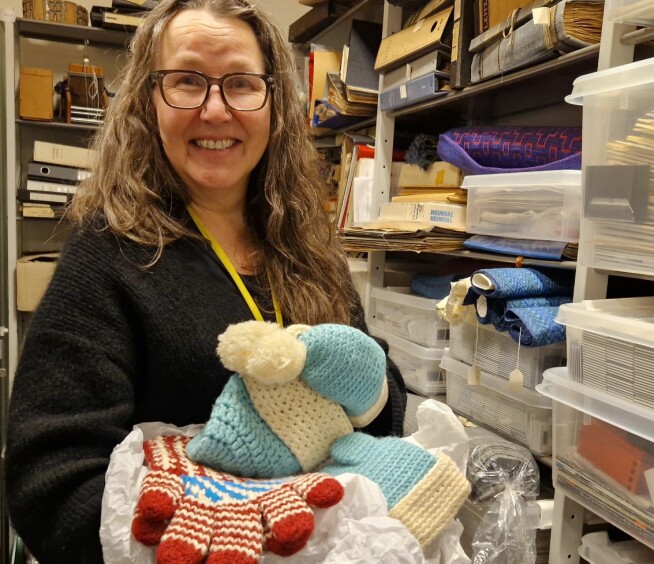
“In excellent physical shape”: Football-playing 70-yr-old men have cells that are up to 11 years younger
Older men who have played football throughout their lifetime are younger at cellular level than their inactive peers.
There can be many good reasons for keeping physically active throughout your life, including in old age.
It is healthier for the heart, weight, mind and spirit, and overall it can extend life.
Now a new Danish research study just published in the US journal Progress in Cardiovascular Diseases suggests that physical activity can also keep biological ageing at bay such that older football players, in biological terms, can be up to 11 years younger than their actual age.
In the present study, the researchers investigated the length of so-called telomeres, which indicate a cell’s biological age – the shorter the telomeres, the older the cell. They found that older football players aged 65-80 had longer telomeres than their inactive counterparts.
“When we look at the functional capacity of older football players, they are in excellent physical shape, and in this study we show that this also manifests itself in a younger biological age in the cells, which potentially can be related to a longer lifetime,” explained one of the researchers behind the new study, Peter Krustrup, professor in the Department of Sports Science and Clinical Biomechanics at the University of Southern Denmark, when Videnskab.dk caught up with him on the phone.
Football is associated with a younger body
Since 2003, Peter Krustrup has investigated the health benefits of physical activity, especially football.
So far, the research has shown that men aged 65-80 who have played football for practically their whole lives have:
- The same functional muscle strength and balance as 30-year-old untrained men. You can find the study here.
- Higher bone mineral density in the legs than 25-year-old untrained men. The study can be found here.
- Fitness and heart function that are 20 years younger. You can read the study here.
“We have produced more than 200 scientific articles on sport and health over the past 17 years, and overall they show that football and other sports can contribute significantly to keeping older people healthy well into old age. So the big question is obviously whether sport can also delay ageing,” says Peter Krustrup.
Telomeres play a role in the body’s expiry date
In the study, PhD student Marie von Ahnen Hagman at the University of Southern Denmark in Odense, in collaboration with researchers from Saarbrücken and Leipzig in Germany, analysed i.a. the length of the telomeres in two types of white blood cells in four different groups of men:
- Older football players aged 65-80 who had played football for at least 40 years and were still active players.
- Age-matched older men who had not performed regular exercise for at least the past year, and no competitive sports for decades.
- Young elite football players aged 18-30 who had played football for at least 10 years.
- Age-matched young men who had not performed regular exercise for at least one year.
The results of the study show that older football players’ telomeres in the two types of white blood cells were 2.5% longer in the granulocytes (the first type of white blood cells) and 1.3% longer in the lymphocytes (the second type of white blood cells).
When the researchers compared telomere length between older football players and younger football players, they found that older football players had between 4.0 and 2.7% shorter telomeres.
“In this perspective, the 2.5% and 1.3% are significant differences, and according to a large US study from 2017 it equates to a difference in biological age of between 5 and 11 years,” says Marie von Ahnen Hagman.
Is it actually football that makes the difference?
In general, the study was very well executed. However, there is still a 'but' that is really bothering Clinical Professor Stig E. Bojesen of the Department of Clinical Biochemistry at Herlev and Gentofte Hospital.
Professor Bojesen was not involved in the new research study, but he has read the conclusions and the method behind the tests.
According to the professor, the results are to be expected because there is no doubt that playing football is healthy both for the body and for biological ageing. But it is nevertheless extremely difficult to know how everything is connected.
Stig E. Bojesen points out that the study as such cannot determine:
- Whether the men have a younger biological age because they play football.
- Whether they play football because they have a younger biological age.
- Or whether an unrelated third factor means they play football AND have a younger biological age.
“It may be that people who play football throughout their lives also generally live more healthy or struggle with fewer health-related problems that could have a negative impact on their biological age. This could be the reason for the results that the study has found,” says the professor.
Stig E. Bojesen also points out that it is obviously almost practically impossible to conduct a study in which, over 50 years, you get one group of men to play football and another group to be inactive.
However, it would be this type of study that could definitively affirm the direct anti-ageing effect of playing football or practising other forms of sport.
Researchers recognise the issues
Peter Krustrup and Marie von Ahnen Hagman recognise the issues around the causal link.
In the scientific article, they describe how telomere length is also related to other factors such as smoking, BMI, alcohol consumption, diet, socioeconomic status and stress level. In the study, the researchers only controlled for smoking and alcohol consumption.
In order to address the question of the direct link, the researchers plan to carry out a follow-up training study in which older, untrained participants will play football two to three times a week for 12 months to investigate whether a shorter period of regular football training in older people could have an effect on telomere length.
Women also to be tested
The researchers are now finalising a similar study with women aged 60-80 in which they have expanded the protocol to also test fitness, heart function, muscle strength and psychosocial health.
“In the upcoming study, we will have the opportunity to investigate the correlation between telomere length and parameters such as fitness, cardiac health and self-perceived quality of life, which could be an interesting addition to the findings in men,” says Marie von Ahnen Hagman.
Peter Krustrup stresses that although the trial participants played football, many other sports could probably do the same for biological age. Researchers have found similar links between telomere length and high-intensity interval training and endurance training in the form of running.
“But football is an effective combination of three training types, offering endurance training, intense interval training and strength training in one and the same sport. This brings broad-spectrum positive benefits that aren’t found in other sports that only involve one, or perhaps two, of the cited training types,” says Peter Krustrup.






